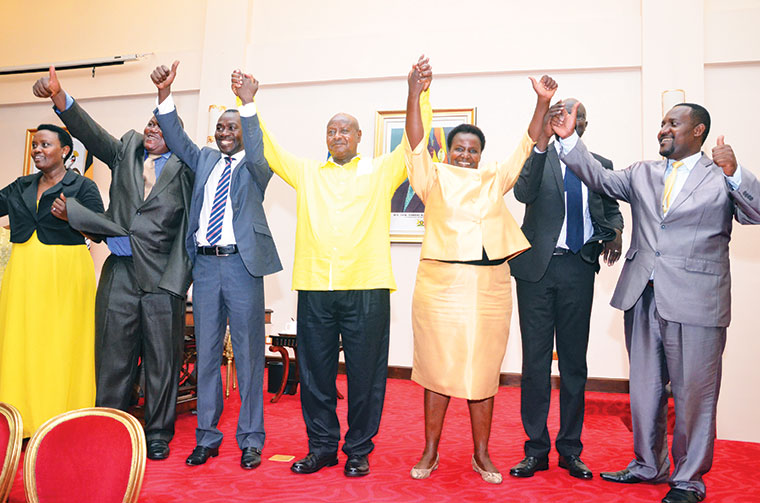The ruling National Resistance Movement’s Caucus is in convening today at Parliamentary building ahead of the East African Legislative Assembly election; discussing which opposition candidates to vote for, will top the agenda.
Tomorrow, the Parliament will vote for 9 EALA members to represent the country, 6 of which are NRM and others the opposition.
Organised by the party SG Justine Kasule Lumumba, the meet which is now presumably in session is to strike a deal with the NRM-leaning independent Members of Parliament to vote for all the 6 NRM candidates Mathias Kasamba, Mary Mugyenyi, Paul Musamali, George Innocent Odongo, Denis Namara and Rose Akol. The NRM would also in turn vote an independent candidate who is yet to be agreed.
47 aspirants were cleared last Monday by the Parliament’s Verification Committee chaired by Beatrice Rwakimari (NRM, Ntungamo) to compete for the 9 EALA slots.
NRM parliamentary caucus chairperson, Solomon Silwany said today, “As a matter of principle, we want to re-affirm to all our members, including those who didn’t vote for the six NRM nominees, that they should vote as a bloc to take NRM forward. We shall also agree on someone within the opposition, who is competent, friendly and who will take the national agenda to the region. Once, we agree on the opposition candidate, members will be obliged to vote that person.”
Last week, Parliament declined a request from the Forum for Democratic Change, FDC, to withdraw Ingrid Kamateneti Turinawe, as its second candidate.
That request has since stirred an internal dispute within FDC pitting Turinawe against Maj Gen Mugisha Muntu, the party president, who wrote to Parliament last week recalling the candidature of his secretary for mobilisation.
Eala is composed of 45 members from the five EAC countries; Tanzania, Kenya, Uganda, Rwanda and Burundi. The members are elected indirectly by the respective national parliaments for a five-year term of office that is renewable once. In addition, Eala also admits five ex-officio members.
Eala members are elected from both the ruling party and the opposition, in line with the proportional representation in the respective national parliaments. A brief on the regional parliament’s website quotes Article 50 of the EAC Treaty, which requires that Eala’s members must “represent as much as it is feasible, the various political parties represented in the National Assembly, shades of opinion, gender and other special interest groups in that Partner State.”











